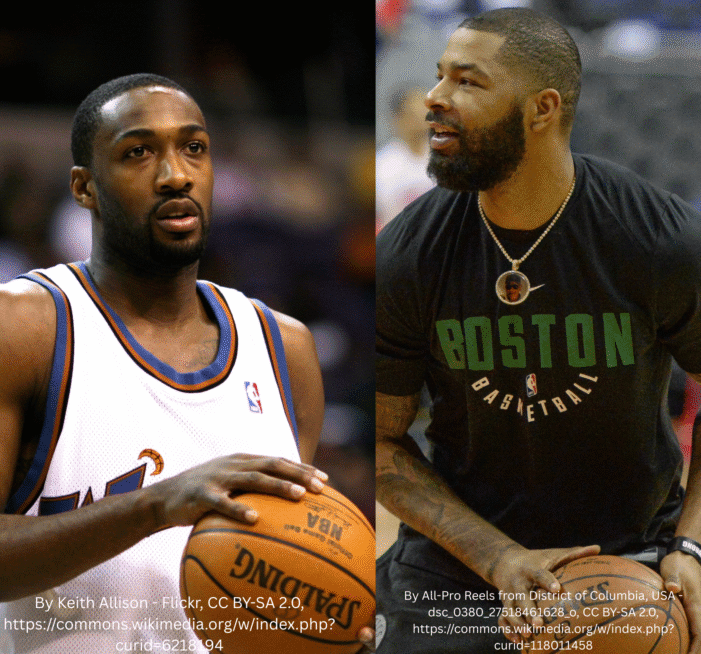By Emerald Green
In July 2025, two former NBA players, Gilbert Arenas and Marcus Morris Sr., made headlines with separate legal troubles tied to gambling and fraud. While unrelated, their cases raise sharp questions about how betting and alleged misconduct off the court can ripple back into trust in the game itself.
Gilbert Arenas, the former 3× NBA All-Star known as Agent Zero, was indicted by federal authorities for orchestrating a high-stakes illegal poker business at his mansion in Encino, California. Prosecutors say from September 2021 to July 2022, Arenas and co-defendants ran Pot Limit Omaha games, collected “rake,” and staffed events with chefs, security, valet, and women paid taxed tips. Charged counts include conspiracy, operating an illegal gambling business, and making false statements to federal investigators. If convicted, each count carries up to five years in federal prison.
Marcus Morris Sr., former NBA forward and current ESPN analyst, was arrested Sunday July 27, 2025, at Fort Lauderdale-Hollywood airport facing fraud charges tied to unpaid casino markers totaling $265,000 at MGM Grand and Wynn Las Vegas in 2024. Court reports state Morris received $115,000 from MGM and $150,000 from Wynn using bad checks—funds never repaid—with bail denied in Broward County, FL. Morris and his camp deny intent to defraud, calling it “outstanding marker” issues and financial misunderstanding; Morris posted an expletive-laden denial to media shortly after.
While Arenas’s and Morris Sr.’s cases are legally separate, they converge under the broader theme of NBA-linked gambling allegations. Unlike past scandals where NBA integrity was directly undermined (such as the 2007 Tim Donaghy referee scandal), these two cases pose a different risk vector:
- Reputation risk: Two players facing gambling-related legal allegations within days raise alarm over player conduct and the blurred lines between legal wagering and illicit activity.
- Fan trust erosion: When ex-players are linked to betting scandals—even off-court—it fuels suspicion among fans about players’ relationships to gambling networks and potential influence on results.
- Regulatory scrutiny: The NBA and federal regulators may reconsider enforcement around sports wagering transparency, especially with the rapid growth of legalized sports betting in the U.S.
- Past baggage: Arenas previously made headlines in 2009 for a locker-room weapon dispute tied to poker debt. Now, older incidents and new charges compound his legal and reputational troubles.
However, no current evidence suggests that either case involves match-fixing or manipulating game outcomes. Both Allegations—illegal poker ring and bounced casino checks—are separate from in-game betting integrity.
The 2007 Tim Donaghy scandal, where an NBA referee admitted to betting on games he officiated and influencing point spreads, triggered widespread outrage and rule changes. Earlier scandals—such as the CCNY point-shaving scandal and 1961 NCAA corruption cases—led to permanent NBA bans and reinforced the importance of maintaining integrity in every tier of basketball competition.
These precedents demonstrate how off-court gambling and financial pressure can escalate into direct interference with game outcomes—and wallop basketball’s credibility.
Though Arenas’s illegal poker ring and Morris Sr.’s casino fraud stem from different facts, their proximity in timing amplifies media scrutiny on the NBA’s links to gambling. Even the perception of repeated misconduct among former players can boot a domino effect—where public trust erodes, legal regulators tighten oversight, and future allegations become more suspect.
Until more details emerge or investigations tie these cases to in-game outcomes, they remain financial and criminal matters, not integrity crises. Yet the NBA—past scandals included—has shown that even the hint of impropriety can ripple far beyond the courts.


